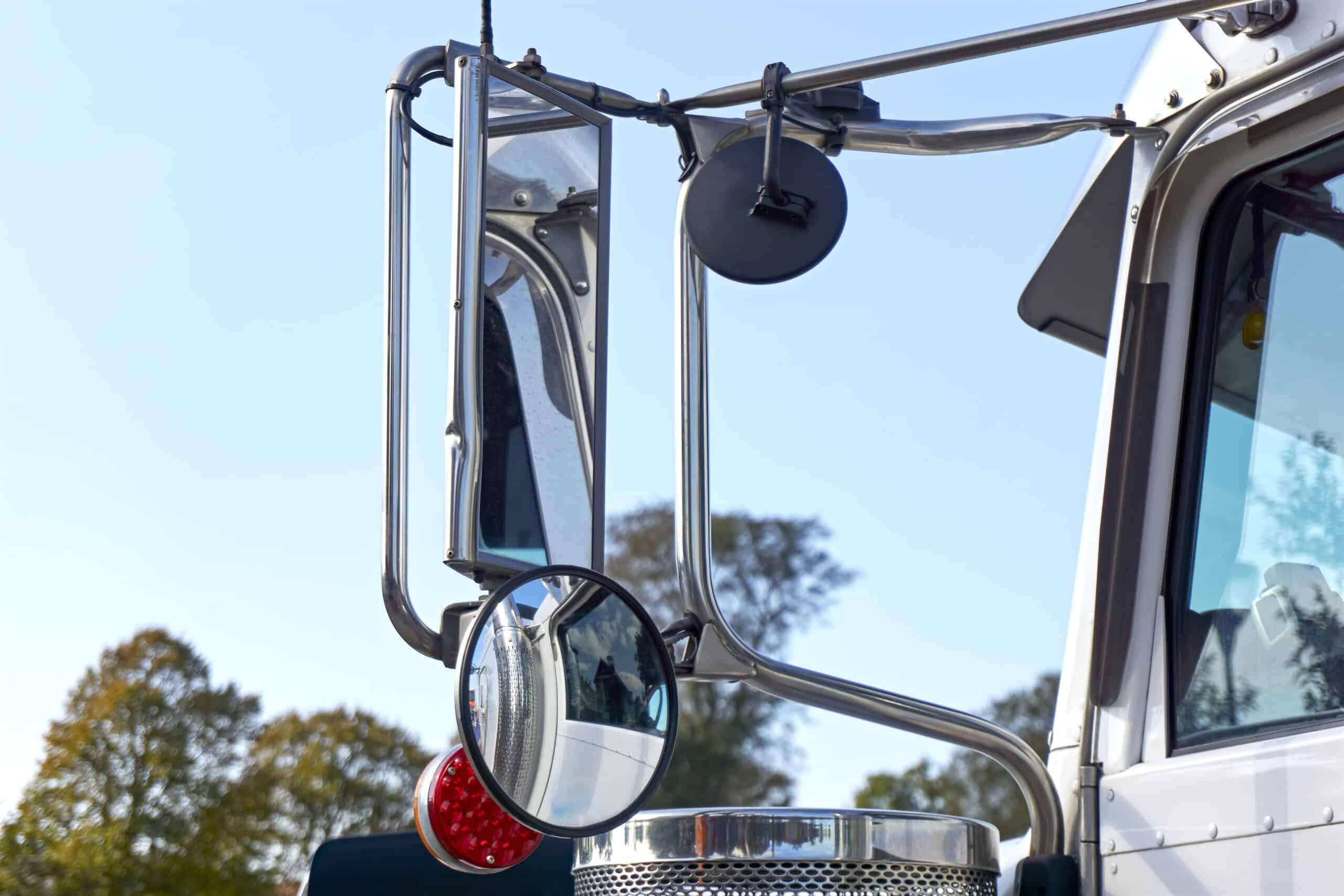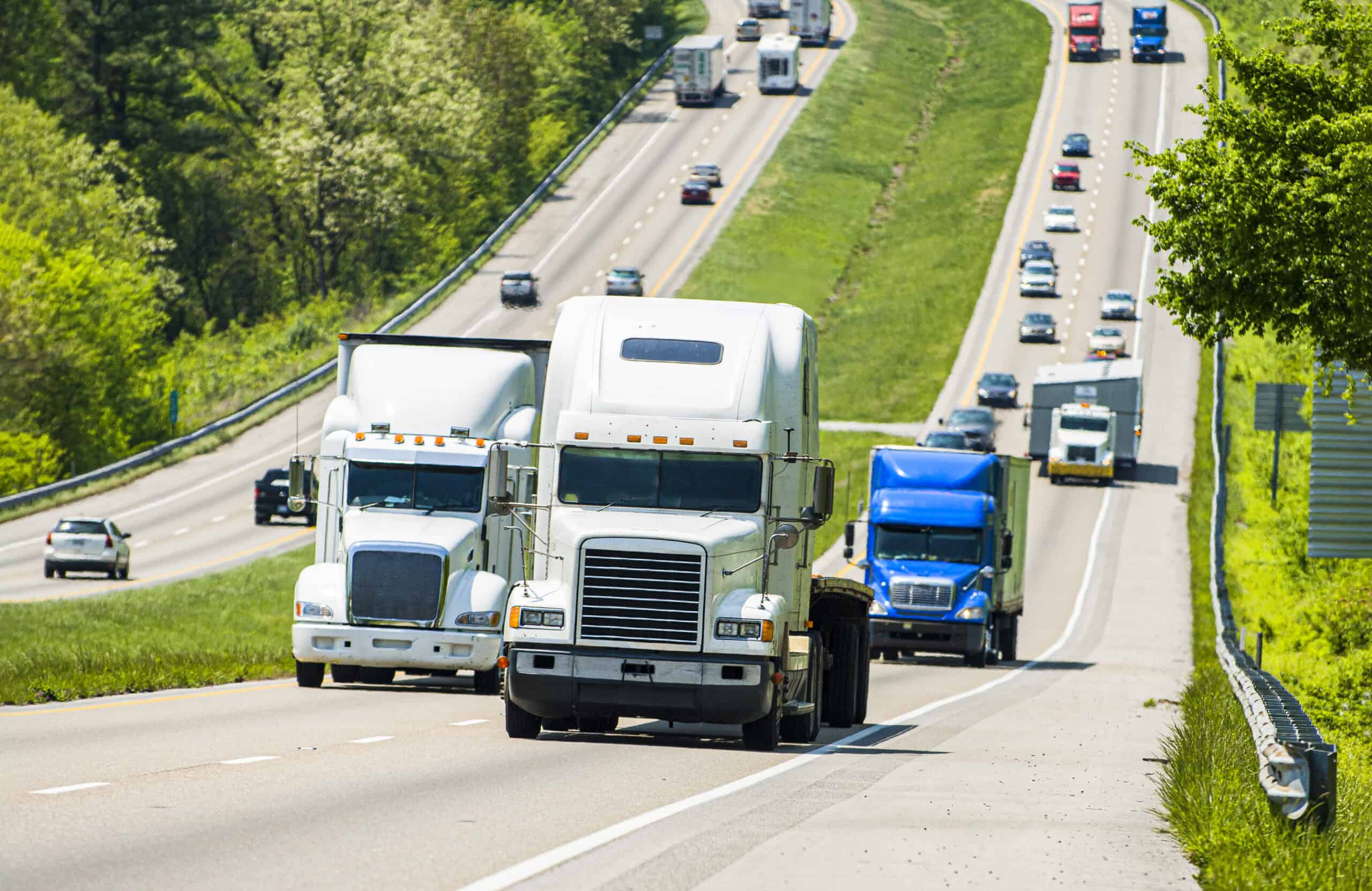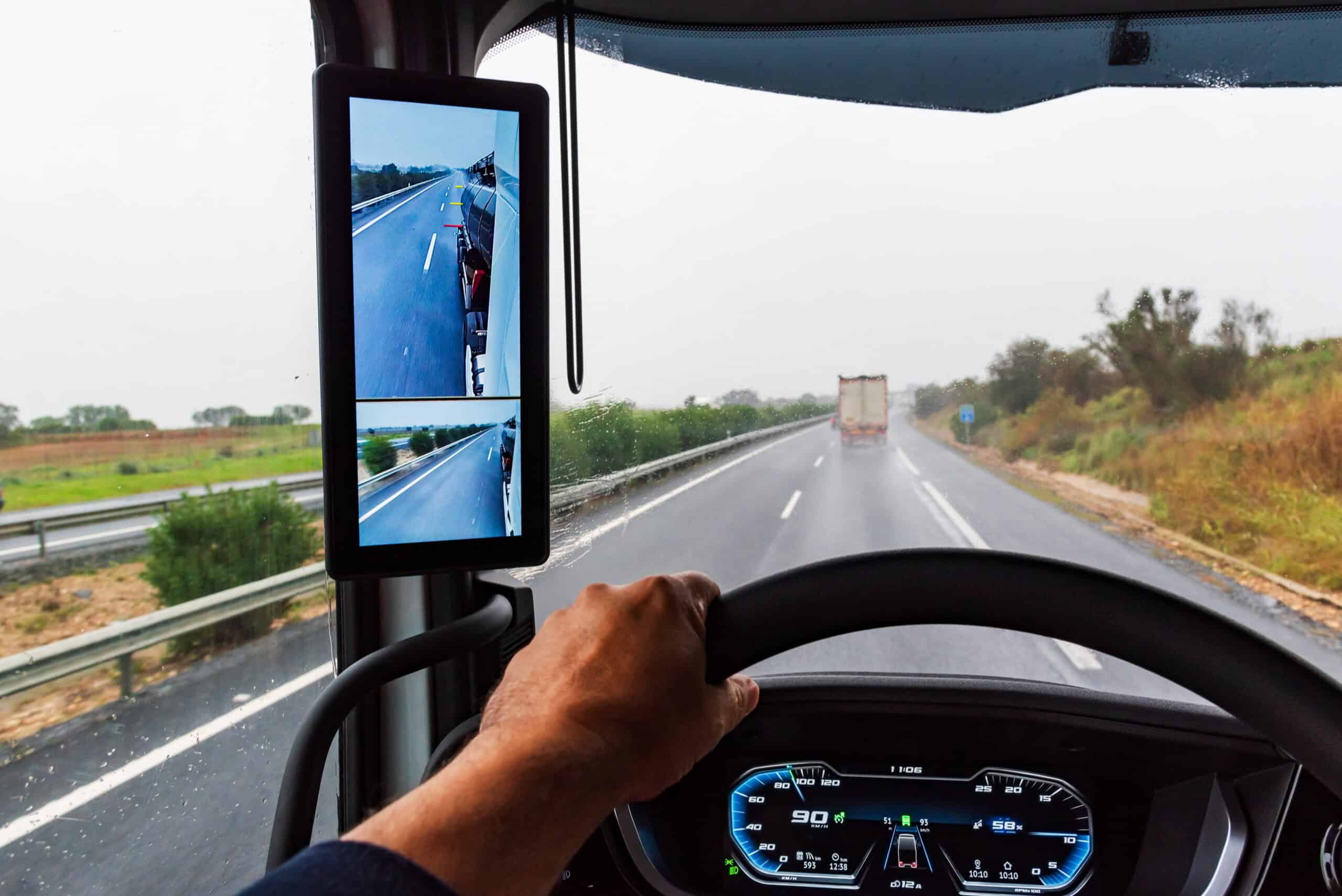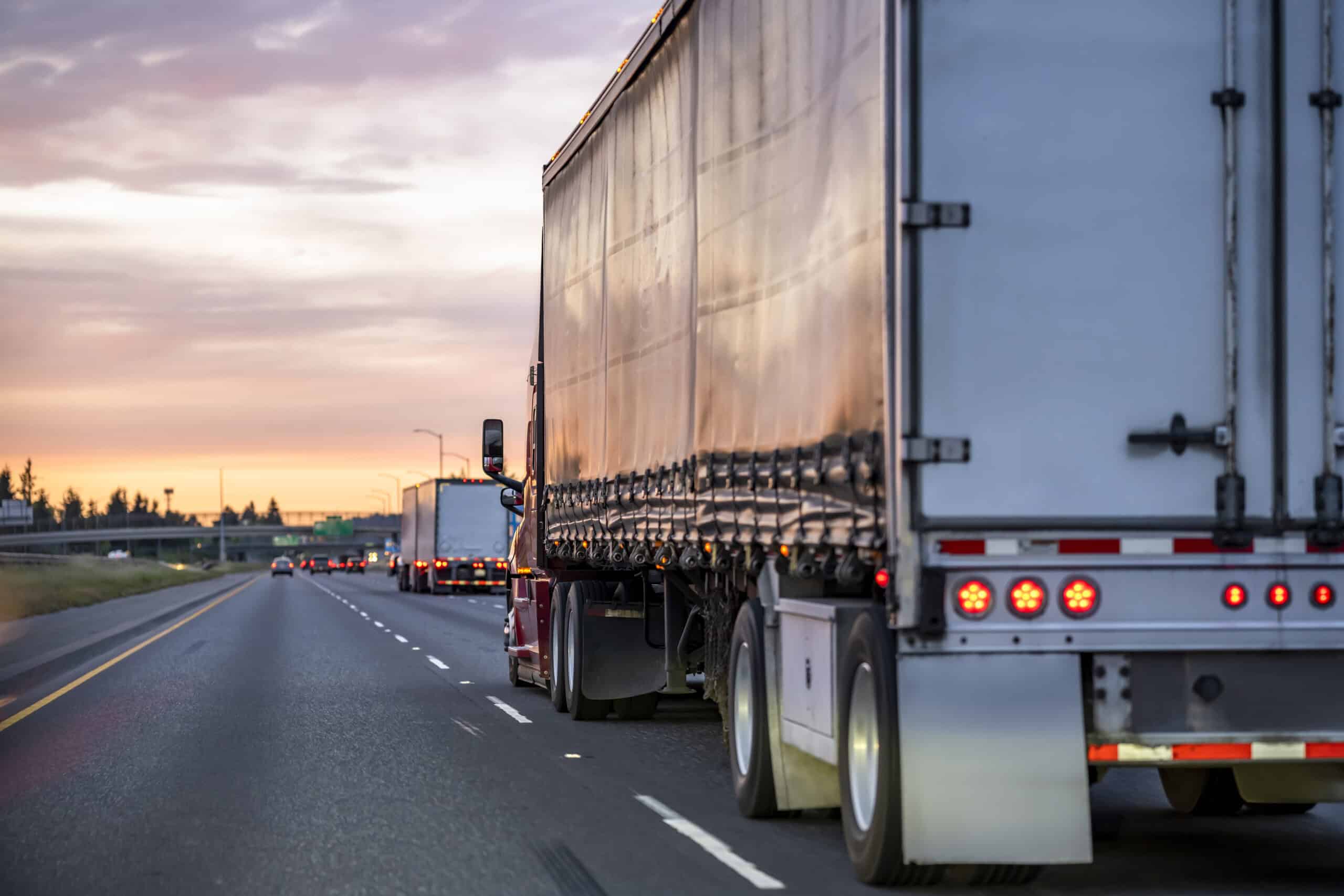Indiana Blind Spot Truck Accident Lawyers
At the Doehrman Buba Ring law firm, we boast a dedicated team of truck accident lawyers who specialize in handling cases involving blind spot accidents. Our personal injury lawyers possess a deep understanding of the complexities that come with truck accident litigation, including the specific challenges posed by blind spot accidents. With years of experience and a proven track record of success handling truck accident cases, our lawyers are committed to fighting for the rights of those injured in such accidents, ensuring they receive the compensation they deserve for their losses and suffering. Contact us for a free consultation with an experienced truck accident lawyer to learn more about your options to recover compensation for your Indianapolis truck accident case.

What are Blind Spot Truck Accidents?
Blind spot accidents occur when a vehicle is in a spot around a truck where the truck driver cannot see it, either through the side mirrors or rear mirrors. These blind spots, often referred to as “No-Zones,” are significantly larger in trucks than in passenger vehicles due to their size and height. Accidents can happen when a truck changes lanes, turns, or merges into traffic while a vehicle is in one of these blind spots, leading to potentially severe collisions. Recognizing the dangers associated with these blind spots and understanding how to avoid them is crucial for all drivers to reduce the risk of these types of accidents.
Why Blind Spot Truck Accidents Are Dangerous
Blind spot truck accidents are highly dangerous due to the substantial disparity in size and weight between trucks and passenger vehicles. This discrepancy means that when a collision occurs, the smaller vehicle typically sustains much more damage, putting its occupants at a higher risk of severe injury or even fatality. Additionally, trucks’ blind spots, or “No-Zones,” are much larger than those of smaller vehicles, increasing the likelihood of a truck driver unknowingly colliding with another vehicle while changing lanes or turning. The limited visibility can lead to catastrophic side-impact and underride accidents, where a car slides under the truck, significantly increasing the potential for fatal outcomes. Understanding these risks emphasizes the importance of awareness and precautionary measures to avoid blind spot accidents.
Common Causes of a Blind Spot Truck Accident
Blind spot accidents often stem from a combination of factors that contribute to the increased risk of collisions.
Size of Large Commercial Trucks
One of the primary causes of a blind spot accident is the inherent design of large trucks, which includes substantial blind spots on all four sides of the vehicle. This makes it challenging for truck drivers to see smaller vehicles that are close to the truck, especially when making turns or lane changes.
Truck Driver Fatigue
Additionally, semi-truck driver fatigue is a significant factor, as many truck drivers are on the road for long hours without sufficient rest, leading to decreased alertness and slower reaction times.
Failure to Properly Use Mirrors
Another common cause of trucking accidents is the failure to use or properly adjust mirrors. Despite the availability of technology and mirror systems designed to reduce blind spots, not all trucks are equipped with these tools, or drivers may not use them effectively.
Reckless Driving of Other Motorists
Furthermore, the reckless driving behaviors of other drivers of passenger cars, such as speeding, driving aggressively, or lingering in a truck’s blind spot, exacerbate the risk of accidents.
Poor Weather Conditions
Poor weather conditions and low visibility also play critical roles, as they further limit a driver’s ability to detect vehicles in blind spots.
Understanding these causes is vital for both preventing accidents and determining liability in the aftermath of a collision.

Liability for Blind Spot Accidents
Determining liability in truck accidents, especially those involving blind spots, can be complex, involving multiple parties.
Truck Driver or Trucking Company
Generally, the commercial truck driver may be held responsible if the accident resulted from their negligence, such as failing to check blind spots before changing lanes or merging. However, liability is not limited to the truck driver alone. The trucking company could also be held liable under the legal doctrine known as “respondeat superior,” which states an employer can be responsible for the actions of its employees, provided those actions occurred within the scope of employment.
Truck Manufacturers
In some instances, manufacturers of the truck or its components may be liable if a mechanical failure caused by a defect contributed to the accident. Similarly, maintenance companies might be held responsible if inadequate maintenance is a factor.
Other Motorists
Lastly, other involved motorists could share liability if their actions contributed significantly to the accident’s occurrence. Assigning liability typically requires a thorough investigation into the crash, involving police reports, witness statements, and possibly accident reconstruction experts.

How a Passenger Car Can Avoid a Blind Spot Accident
Avoiding blind spot accidents primarily involves awareness and defensive driving techniques from the sides of both passenger car drivers and commercial truck drivers. Here are strategic steps that passenger vehicle drivers can take to minimize the risk of a blind spot accident:
Stay Out of Blind Spots
Drivers of passenger vehicles should be aware of the locations of a truck’s blind spots—directly in front, behind, and along both sides of the truck—and make every effort to spend minimal time in these zones. If you need to pass a truck, do it quickly and safely to avoid lingering in the blind spot.
Use Turn Signals Early
Signal your intentions well in advance of making a move around a truck. This early notification can give a truck driver time to react and ensure they are aware of your vehicle’s movements.
Maintain Safe Distances
Keep a safe distance from trucks to provide yourself with more reaction time. Tailgating a truck, especially in its blind spot, significantly increases the risk of an accident if the truck needs to stop suddenly.
Pass Safely
Always pass trucks on the left side, where the driver’s blind spot is smaller, and ensure the entire truck is visible in your rearview mirror before pulling in front of it. This ensures the truck driver has a better chance of seeing your vehicle.
Be Predictable
Avoid erratic maneuvers or sudden lane changes around large trucks. Predictable actions allow truck drivers to better anticipate and react to the flow of traffic around them.
Stay Alert
Pay careful attention to the indicators and brake lights of the truck, especially in heavy traffic or congested areas, as these can give early warnings of the truck’s movements.
Anticipate Wide Turns
Commercial trucks require more room to make turns, especially right turns. Give them ample space and never attempt to squeeze through the right side of a truck that is turning.
By implementing these strategies, drivers of passenger vehicles can significantly reduce the likelihood of being involved in a blind spot accident with a commercial truck. Awareness and cautious driving can improve road safety for everyone.

Damages Available in a Truck Accident Case
Victims involved in large truck accidents may be entitled to various forms of compensation, depending on the circumstances of the case and the extent of the injuries and losses suffered. Generally, the damages in a semi-truck accident case can be categorized into two main types: compensatory and punitive damages.
Compensatory Damages
Compensatory damages are intended to compensate the victim for both economic and non-economic losses. Economic damages cover tangible losses such as:
Medical Expenses
This includes medical bills for past, current, and future medical treatments related to injuries sustained in the truck accident.
Lost Wages
Compensation for wages lost due to time off work following the accident, as well as potential future earnings lost if the victim is unable to return to work or suffers from reduced earning capacity.
Property Damage
Reimbursement for repairs or the replacement value of the vehicle and any other property damaged in the semi-truck accident.
Non-economic damages, on the other hand, are awarded for losses that are intangible and not directly quantifiable, including:
Pain and Suffering
Compensation for physical pain, discomfort, and suffering endured as a result of the injuries.
Emotional Distress
This covers psychological impact such as anxiety, depression, and trauma.
Loss of Enjoyment of Life
Damages for the inability to enjoy hobbies and other activities that were part of the victim’s life before the accident.
Loss of Consortium
Compensation awarded to the spouse or family members for the loss of companionship, affection, and support resulting from the injuries.
Punitive Damages
Punitive damages are not commonly awarded in truck accident cases and are separate from compensatory damages. They are designed to punish the defendant for particularly reckless or negligent behavior and to deter similar conduct in the future. The eligibility for punitive damages varies by jurisdiction and generally requires proof of malicious intent, fraud, or gross negligence on the part of the defendant.
Victims of truck accidents should consult with the experienced legal team at the Doehrman Buba Ring law firm where we can accurately assess the damages applicable to your case and advocate for the full compensation you deserve.

Common Injuries from Commercial Truck Accidents
Blind spot truck crashes can lead to a wide array of injuries, ranging from minor to life-altering in severity. Some of the most commonly reported injuries include:
- Whiplash and Soft Tissue Injuries: Due to the sudden jerking motion of the accident, whiplash and soft tissue injuries are common in many types of vehicle collisions, including those involving blind spots.
- Broken Bones: The intense impact of a truck accident can easily cause fractures in various parts of the body.
- Head Injuries: Traumatic brain injuries (TBI), concussions, and other head injuries are serious consequences of blind spot accidents, often resulting from the head striking a part of the vehicle or flying debris.
- Spinal Cord Injuries: These serious injuries can lead to paralysis or other lifelong disabilities, depending on the severity and location of the injury along the spine.
- Internal Injuries: The force exerted during a blind spot truck accident can cause internal bleeding and damage to organs, which might not be immediately apparent.
- Lacerations and Abrasions: Broken glass and metal can cause serious cuts and scrapes, which may lead to significant blood loss or infection.
- Psychological Trauma: Beyond physical injuries, victims of truck accidents often experience PTSD, anxiety, depression, and other emotional distress, impacting their quality of life and ability to return to normal activities.
Proper medical assessment and care are crucial following a truck accident to address both evident and latent injuries. Early intervention can significantly influence the recovery process, highlighting the importance of seeking medical attention immediately after a truck accident.
How an Indianapolis Truck Accident Lawyer at Doehrman Buba Ring Can Help
Navigating the aftermath of a truck accident in Indianapolis can be overwhelming for the victims and their families. The truck accident attorneys at Doehrman Buba Ring possess the expertise in commercial truck accident cases and the resources needed to guide clients through these challenging times. Here’s how they can assist:
Investigation and Evidence Gathering
Our legal team conducts thorough investigations to gather all necessary evidence. This includes acquiring police reports, eyewitness accounts, trucking company records, and accident scene photographs to build a strong case.
Expert Consultations
We work with accident reconstruction specialists, medical professionals, and economic impact analysts to understand the full extent of your injuries and losses. These expert insights play a crucial role in articulating the damages and determining the compensation you deserve.
Dealing with Insurance Companies
Insurance companies often aim to minimize payouts. Our skilled attorneys negotiate aggressively with insurers on your behalf to ensure you receive the full and fair compensation possible, without falling prey to their tactics.
Legal Strategy and Representation
With decades of experience in personal injury law, our team is adept at formulating effective legal strategies tailored to each case. Whether through settlement negotiations or trial advocacy, Doehrman Buba Ring is committed to securing the best possible outcome for our clients.
Compassionate Legal Support
We understand the emotional and physical toll a truck accident can take on victims and their families. Our firm is dedicated to providing not just legal representation, but also the compassionate support needed during this difficult time.
At Doehrman Buba Ring, our focus is on holding the responsible parties accountable and ensuring our clients get the justice and compensation they rightfully deserve. If you or a loved one has been involved in a truck accident in Indianapolis, contact us today for a free consultation and find out how we can help on your road to recovery.
What to Do After a Blind Spot Truck Accident
Understanding the steps to take after a blind spot truck accident is vital for both immediate safety and the protection of legal rights. If you find yourself involved in such an accident, follow these steps carefully:
- Ensure Safety First: Immediately check for injuries and move to a safe location if you’re able to do so without causing further harm. Turn on your vehicle’s hazard lights to alert other drivers.
- Call Emergency Services: Dial emergency services to report the truck accident and any injuries. Police and medical teams will provide necessary assistance and documentation.
- Document the Scene: Take photographs of the truck accident scene, including vehicle positions, damage, and any relevant road signs or markings. This evidence can be invaluable for insurance claims and potential legal proceedings.
- Exchange Information: Exchange contact and insurance information with all parties involved in the accident. Also, gather contact information from witnesses, as their accounts may prove helpful later.
- Report the Accident to Your Insurance Company: Inform your insurance company about the accident as soon as possible. While you should cooperate with the investigation, we recommend you speak with a truck accident lawyer before giving any statements to the insurance company.
- Seek Medical Attention: Even if you do not feel injured, it is crucial to see a healthcare professional. Some injuries, like whiplash or internal damage, may not be immediately apparent immediately after the truck accident.
- Consult with an Indianapolis Truck Accident Lawyer at Doehrman Buba Ring: Considering the complexity of truck accidents and the potential for significant damages, consulting with an experienced truck accident attorney can help you understand your legal rights and options for seeking compensation in your truck accident case.
- Follow Up on Medical Care: Follow your healthcare provider’s recommendations for treatment and keep records of all visits and treatments related to injuries sustained in the truck accident.
Remember, the aftermath of a truck accident can be chaotic and overwhelming. Taking these steps not only ensures your immediate safety but also establishes a foundation should you need to pursue compensation for any injuries or damages incurred.
Doehrman Buba Ring is Committed to Truck Accident Victims
Doehrman Buba Ring has a deep understanding of the complexities involved in commercial truck accidents and the impactful strategies for dealing with trucking companies to secure maximum compensation for accident victims. With extensive experience in personal injury law, especially cases involving commercial vehicles, our legal team is proficient in navigating the convoluted procedures that truck companies often employ to minimize their liability. At Doehrman Buba Ring, supporting our clients through this challenging process and achieving a favorable resolution is our top priority. Call us today for a free consultation.


